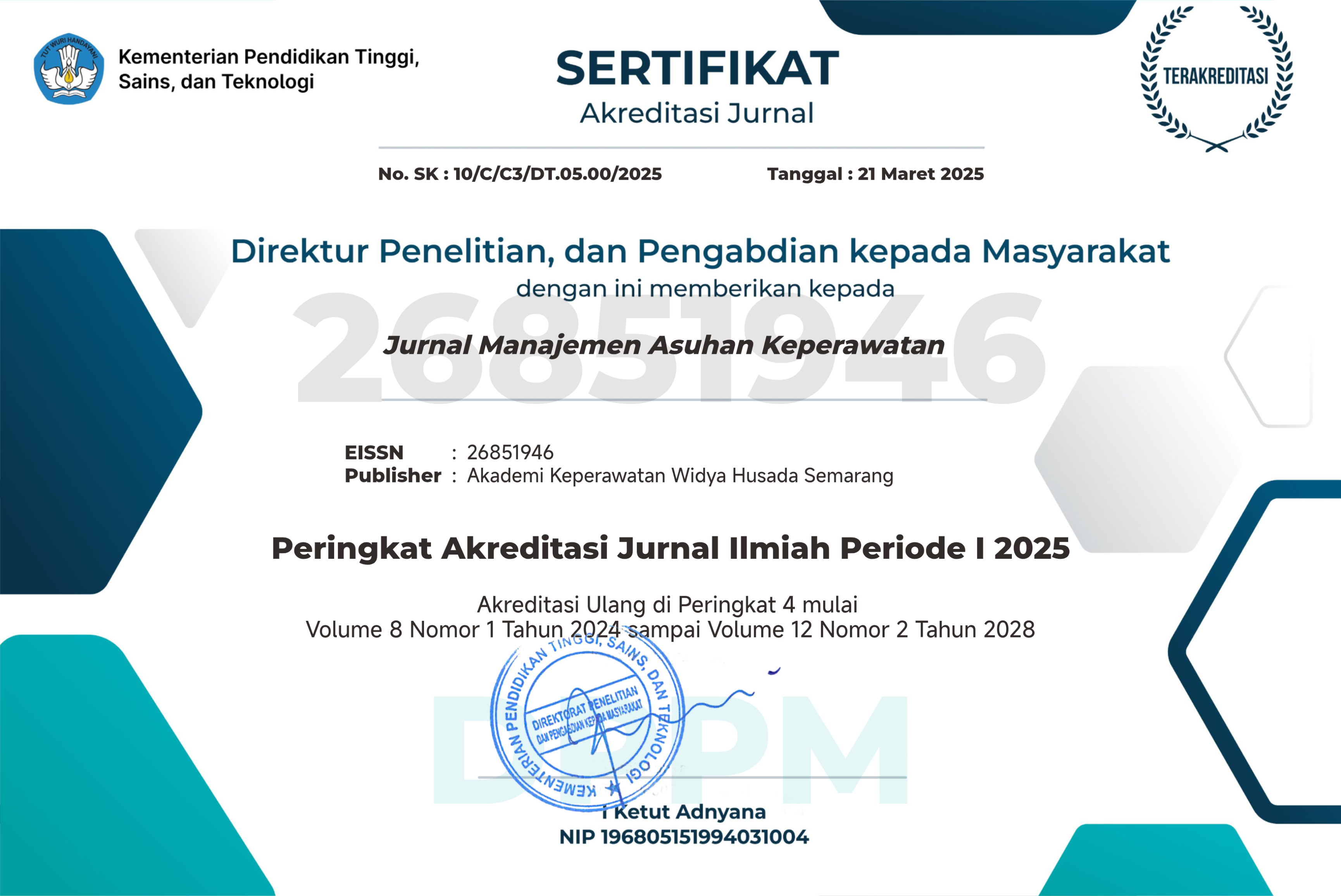Efek Pemberian Buah Naga Merah (Hylocereus Polyrhizus) Terhadap Penurunan Kadar Glukosa Darah Pada Penderita Diabetes Tipe 2
Abstract
Diabetes Mellitus is a non-communicable disease and is an important public health problem. Diabetes mellitus is a chronic disease in which the pancreas does not produce enough insulin or when the body is ineffective in using it (WHO, 2016). One of the non-pharmacological management of diabetes mellitus is the administration of red dragon fruit. Dragon fruit is rich in antioxidants and contains many substances such as calcium, beta-carotene, vitamin B1, vitamin B2, vitamin C, phosphorus and flavonoid substances so that it can be used as a therapy to reduce blood glucose levels by preventing apoptosis due to oxidative reactions. The purpose of this case study is to compile a resume of nursing care in giving red dragon fruit to reduce blood glucose levels. This type of research is descriptive with a case study method in the form of a one group pretest posttest design. The subject of this study was 1 patient with diabetes mellitus. The results of the study showed that there was a change in the patient's condition after being given red dragon fruit for 10 days. Conclusion Dragon fruit has the effect of lowering blood glucose levels in people with type 2 diabetes mellitus because it contains fiber that is able to bind water in the intestines, and contains antioxidants and bioactive compounds and is able to inhibit free radical compounds.
Keywords: diabetes mellitus, adults, red dragon fruit















